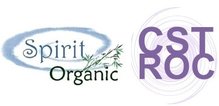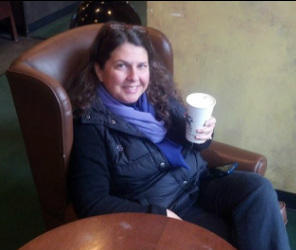For me, a way of being gentle with my children is believing in their innate goodness and ability to grow. Like most parents, I get anxious when my children do not achieve milestones according to the traditional schedule. If one of them does something that I perceive as "not right," it takes an effort for me to have faith that they will not grow up to be unintelligent, immoral delinquents.
While I can guess at the reasons why our children take their time to develop some skills, the reasons aren't the relevant point. The important thing is that a gentle parent allows the child to set the pace of their own growth, knowing that the child's natural state is to grow toward their greatest potential. This does not mean that we just stand by and watch. There are times when it is most helpful for us to hand them a new tool, or show them a different approach, or give helpful guidelines. There have been times when my girls have needed a loving nudge toward a goal I knew they were ready for, but they were still hesitant about. There have been times when they weren't ready even after my nudge. Then we waited some more.
It is not easy to be gentle in this way. My first instinct is to crush my kids, then manage them. Or another favorite of mine seems to be to ignore parenting for a few minutes. Gentleness requires patience and attentiveness. It is not convenient to be gentle. It is easier to bully than to make a game of something my child does not want to do.
I have been most fortunate to have many role models of gentle parenting around me. This was the result of sheer luck, no intelligent choice on my part! Without the examples of my friends, I never would have been able to trust that my children really would mature if given the time and space. I think we forget that this one of RAHA's most vital roles. I have needed to witness the growth of the children in other families in order to trust in my own. I think our vision supports this role and it makes our organization unique. It also means that many people need a lot of time to get used to what we're trying to advocate. So I thank my friends who have inspired me and shown me the way. None of us are perfect, but knowing that it is possible for a bunch of us at least some of the time makes gentle parenting an attainable goal instead of an elusive ideal.


 RSS Feed
RSS Feed